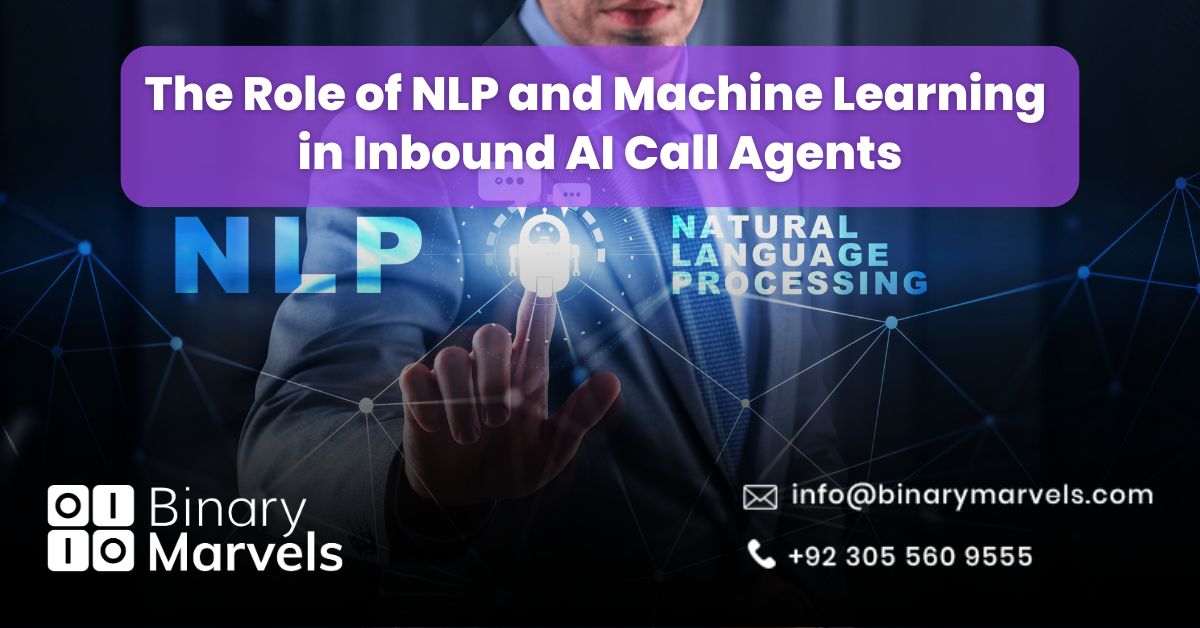
How can you make sure your inbound AI call agent delivers accurate responses every time a customer reaches out? Accuracy is the foundation of a successful AI-powered call handling system, and without proper training, even the most advanced technology can fall short.
Studies show that AI-driven call centers can reduce handling time by up to 40% when agents are properly trained with high-quality data and real-world scenarios. Businesses that focus on structured training not only improve customer satisfaction but also cut operational costs and minimize errors.
In this guide, we’ll explore the best practices for training your inbound AI call agent so it consistently provides accurate, reliable, and customer-friendly support.
Key Takeaways
The best practices for training your inbound AI call agent for accuracy are:
- Train with multilingual data and regional accents
- Define clear objectives and use cases
- Provide high-quality and diverse training data
- Leverage natural language processing for better understanding
- Implement continuous learning with feedback loops
- Test performance with real customer scenarios
Also Read: Top 10 AI Companies in Pakistan
What is an Inbound AI Call Agent?
An inbound AI call agent is a virtual assistant powered by artificial intelligence that handles incoming customer calls. Unlike traditional phone systems, it uses natural language processing and machine learning to understand questions, identify intent, and provide accurate responses in real time.
Businesses use inbound AI call agents to reduce wait times, improve customer satisfaction, and ensure that calls are routed to the right department or resolved instantly. This technology can answer FAQs, process simple requests, and even escalate complex issues to human agents when needed.
By combining voice recognition, sentiment analysis, and predictive analytics, inbound AI call agents are becoming an essential part of modern customer support strategies.
Why Accuracy Matters in AI Call Handling?
Accuracy is the key to building customer confidence in AI-driven support. When an inbound AI call agent understands a query correctly, it provides the right solution instantly, leading to higher satisfaction and loyalty. On the other hand, inaccurate responses can cause confusion, repeat calls, and even customer loss.
For example, a telecom company in the UK trained its AI system with thousands of regional call transcripts. This helped the agent recognize local accents and phrases, which increased accuracy by 35 percent and reduced escalations to human agents. By focusing on precise training, businesses not only save time but also strengthen their reputation for reliable customer service.
Best Practices for Training Your Inbound AI Call Agent
Training an inbound AI call agent is not a one-time process but an ongoing practice that requires clear planning, data preparation, and real-world testing. Below are the most effective strategies explained in detail.
Define Clear Use Cases and Objectives
Start by setting clear goals for what your AI call agent should achieve. This could include answering frequently asked questions, routing calls to the right department, or handling billing queries. By defining use cases, you ensure that training is aligned with actual customer needs and business objectives.
Use High Quality Training Data
The performance of an AI system is only as strong as the data it is trained on. Provide diverse, real-world call transcripts that represent different customer scenarios. Clean your data by removing noise, irrelevant information, and errors to improve training accuracy. High quality data ensures the AI can recognize intent and context correctly.
Leverage Natural Language Processing
Natural Language Processing, or NLP, helps AI agents understand the meaning behind customer queries. By incorporating advanced NLP, your inbound AI call agent can detect intent, identify emotions, and manage different tones of voice. This makes interactions smoother and more human-like.
Implement Continuous Learning and Feedback
AI models improve with practice. Continuously feed your agent with new data from recent customer interactions. Create a feedback loop where human supervisors review the AI’s responses and correct mistakes. This allows the AI to evolve and improve accuracy over time.
Test with Real Customer Scenarios
Simulations are important, but real-world testing is essential. Expose your AI call agent to actual customer calls in controlled environments. This helps identify weak areas, such as difficulty with certain accents or misinterpretation of specific phrases. Testing ensures the system is ready for live deployment.
Focus on Multilingual and Accent Training
In today’s global market, customers interact in multiple languages and dialects. Training your AI agent with multilingual data and regional accents ensures inclusivity and accessibility. For example, UK-based companies benefit from training their AI on British English, while also accommodating international callers.
Also Read: Top 10 Benefits of Using AI for Inbound Call Handling
Tools and Solutions for AI Call Agent Training
Training an AI call agent effectively requires the right tools and solutions that support data preparation, testing, and continuous improvement. These tools make the process more efficient and ensure the AI can deliver accurate results.
AI powered training platforms
Specialized platforms help businesses train their inbound AI call agents with large volumes of real conversations. They provide features like data annotation, speech recognition, and intent classification.
Call analytics software
Analytics tools monitor performance by tracking call outcomes, response accuracy, and customer satisfaction. They highlight areas where the AI needs improvement and allow businesses to refine training methods.
Simulation and testing environments
Testing environments allow companies to run the AI through realistic scenarios before deployment. This reduces the risk of errors in live customer interactions.
Continuous learning systems
Modern AI solutions include built in mechanisms for continuous learning. These systems adapt automatically to new queries, vocabulary, and customer behavior.
For businesses that want complete support, adopting comprehensive AI Inbound Call Solutions can be the most effective way to train, monitor, and scale their AI systems for long term success.
Human AI Collaboration for Maximum Accuracy
While AI call agents can handle a large number of routine inquiries, there are times when human involvement becomes essential. Combining AI technology with human expertise creates a balance that improves overall accuracy and customer satisfaction.
Escalation to human agents
When the AI is uncertain about a query or encounters a complex problem, it should smoothly transfer the call to a trained human agent. This ensures the customer receives the correct solution without unnecessary delays.
Human-supervised training
Human agents play a critical role in reviewing AI interactions. By analyzing incorrect responses and providing corrections, they help the AI learn faster and improve accuracy over time.
Hybrid customer support model
A blended approach, where AI handles repetitive tasks and humans manage sensitive or complicated issues, delivers the best results. Customers benefit from faster service while still having the option of personal support when needed.
By combining automation with human insight, businesses can build inbound AI call agents that are not only efficient but also trusted by customers.
Also Read: Where to Find Training Data for AI Chatbots and Conversational AI
Future of Training AI Voice Agents
The future of training AI voice agents is focused on continuous improvement and adaptability. As customer expectations grow, AI systems must evolve to deliver smarter and more personalized interactions.
Predictive learning capabilities
Next generation AI agents will be able to anticipate customer needs by analyzing past interactions and predicting future queries. This will make responses faster and more accurate.
Proactive customer engagement
Instead of waiting for customers to call, AI voice agents will play a proactive role by offering reminders, updates, and personalized support, improving overall customer relationships.
Advanced multilingual support
As businesses expand globally, AI agents will become more effective in handling multiple languages and regional accents. This will make communication smoother across different customer bases.
Integration with business intelligence
Future AI agents will connect with business systems to provide real time data insights. This means they will not only answer questions but also help in decision making and process optimization.
Businesses that adopt an AI Voice Agent for Inbound Calls will be better positioned to deliver accurate, scalable, and customer focused support in the years ahead.
Supercharge Your Business with AI Today!
As a trusted AI Development Company in Pakistan, we deliver cutting-edge AI Development Services designed to streamline your operations and enhance customer engagement.
Don’t wait—connect with us now and take your business to the next level!
Conclusion
Training your inbound AI call agent for accuracy is an ongoing process that requires clear objectives, quality data, continuous learning, and the right balance of human involvement. When businesses invest in structured training, the result is a system that consistently delivers accurate responses, improves customer satisfaction, and reduces operational costs.
With the support of advanced AI Inbound Call Solutions, companies can streamline their training process, monitor performance in real time, and scale customer service with confidence. By staying committed to best practices, your AI call agent will not only handle calls effectively but also strengthen customer trust in your brand.
Frequently Asked Questions
How do you train an inbound AI call agent?
Training involves setting clear goals, providing high-quality data, using natural language processing, and testing with real customer scenarios.
What makes an AI call agent more accurate?
Accuracy improves when the AI is trained with diverse call transcripts, multilingual data, and regular feedback loops that correct mistakes.
Can an AI call agent handle complex customer queries?
AI can manage most routine and moderately complex queries, but human agents are still important for handling sensitive or highly specialized issues.
How often should AI call agents be retrained?
Retraining should be done regularly, ideally every quarter or whenever new customer behaviors, queries, or business updates arise.
Which industries benefit most from inbound AI call agents?
Industries such as telecom, healthcare, finance, e-commerce, and customer service driven sectors see the greatest benefits from inbound AI call agents.









